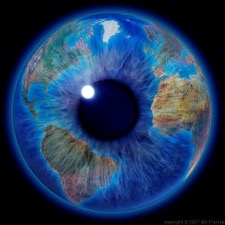
Speaking in general terms, one could say that there are two ways of understanding the human adventure, both in its individual and group aspect.
The first considers life as a process with an inevitably dramatic ending, whereby man (or a group or a people) can do nothing but dodge the biggest blows, try to live as “happily” as possible, and await the end with courage and dignity.
The other way believes that life is theologically ordered, that this order is mirrored not only in the small lives of men but in the entire universe; that each individual and each group has its own specific goal to achieve, which will become clearer the further one progresses in evolution, and that – finally – man, and the group he is a part of, can co-operate with the “current of Life”, thereby promoting the progress of the world to which he belongs, and consequently, also his own personal progress.
This second hypothesis is closely related to the subject of karma; it concerns all creatures of the Manifestation and is closely connected to that of reincarnation. The lives that follow one another are similar to the “days” of our earthly existence, interspersed with “nights”. Just as in our worldly life we become with maturity increasingly autonomous in our choices, less and less dependent on external contingencies and evermore in charge of our own destiny, so in the course of our lives we become wiser and wiser in our choice of experiences and skilled in guiding our evolution. English playwright J. B. Priestley states that we are all living “fairy tales of our own making”.
In The Secret Doctrine, karma is defined as follows: “Karma is a word of many meanings, and has a special term for almost every one of its aspects. It means, as a synonym of sin, the performance of some action for the attainment of an object of worldly, hence selfish, desire, which cannot fail to be hurtful to somebody else. Karman is action, the Cause; and Karma again is ‘the law of ethical causation’; the effect of an act produced egotistically, when the great law of harmony depends on altruism.” (H. P. Blavatsky, The Secret Doctrine – Anthropogenesis)
The law of rebirth, closely related to the doctrine of karma, appears as the only “fixing logic” of life’s apparent injustices; the belief in its presence in the entire universe is an incitement to individuals and human groups to adapt to decreasingly selfish and separative patterns. As we catch a glimpse of the oneness and continuity of life, our involutionary instincts have less and less dominion over us; we gradually free ourselves from them, and this liberation becomes spiritual freedom.
We become more and more compassionate, and aspire that other beings, whom we now recognise as brothers on the same path, be free from suffering. Our minds and hearts, which have become caring and loving, wish for “all beings to be happy”, because no one can feel happy if they live in the midst of the pain of others.
Attachment and hatred are diluted in the “crucible of the heart”, because, due to our increased sensitivity and greater sense of unity, we do not tolerate the thought of being harmful to others.
We understand with increasing clarity that every event that takes place in us is an effect of a cause and, at the same time, becomes a cause of an effect.
The French philosopher Bergson states: “Like the universe as a whole, like every conscious being considered in its own right, the living organism is something that lasts. Its past is compactly prolonged into the present and remains current and operative there” (Bergson, Creative Evolution).
We understand that our Karma is therefore our constant companion; that as long as we act against the Universal Laws it is our just creditor; that in every situation what happens to us does not originate from obscure factors outside of us, but comes from the actions of those we were.
We understand that we are currently experiencing the effects of causes set in motion in the distant and recent past by the activity of that part of our mind that is unaware of the unity of Life.
We understand that, recognising our share of responsibility for the conditions of our existence and of the world around us, we are called to a purifying change: “Purify the heart: this is true religion” (Buddha).
With spiritual advancement, it may happen that we contemplate our past with horror; the dramatic perception of the effects of our “creations” that we feel as “dark”, because they were unloving and unaccountable, bursts into our consciousness.
But sincere repentance and the experience of pain accelerate the time for the luminous birth of Compassion and lead to some sort of conversion: that is, the aspiration to connect to the essential Truths and to cooperate in the restoring of the Divine Plan.
We can now contemplate how in the harmonious Whole – in which, at all levels, “nothing is lost, nothing is created, everything is transformed” – every disharmony generated by violence and lack of love, as well as every action inspired by Brotherhood, fall by karmic law not only on the one who caused them but on the whole community of which the individual is part; it appears evident that each one is co-responsible for the collective destiny. Just as in a family unit, if an individual commits a cruel or foolish act that causes pain, all the members indirectly pay the consequences, in the same way if an individual performs a commendable act the whole “network” benefits from that, precisely because everything is connected.






A work of art